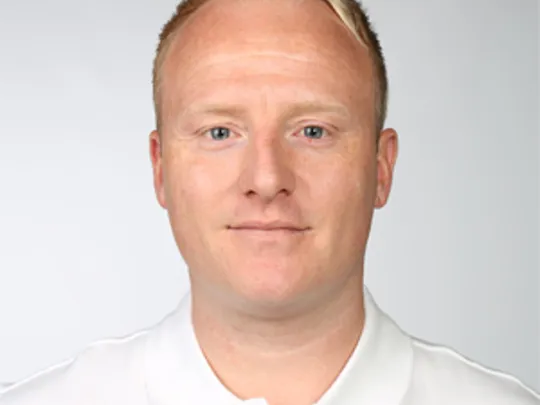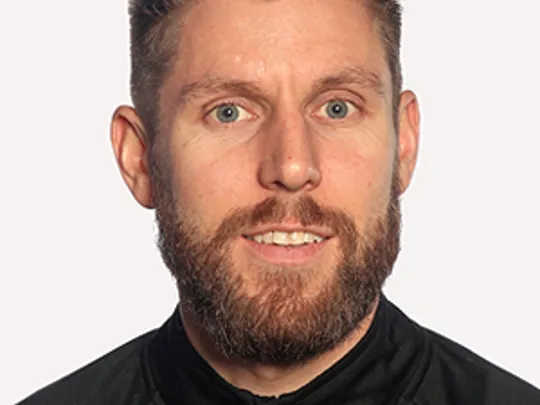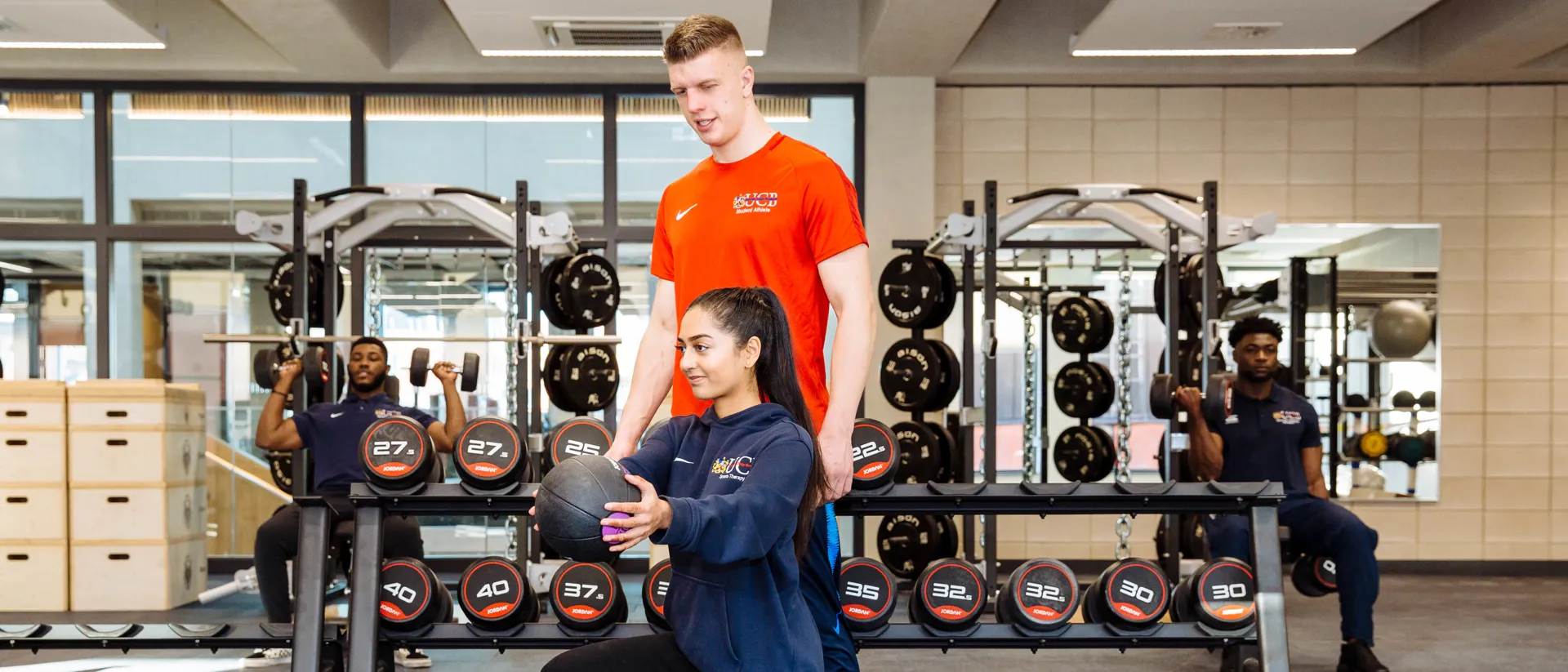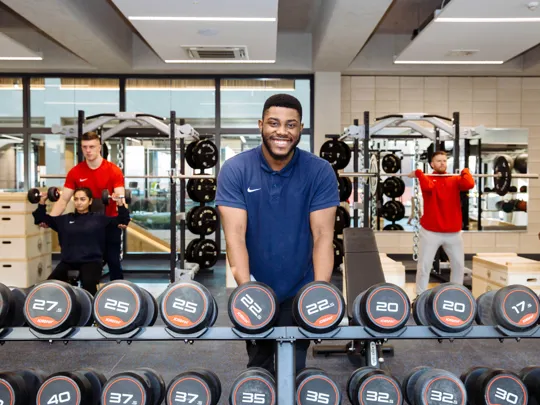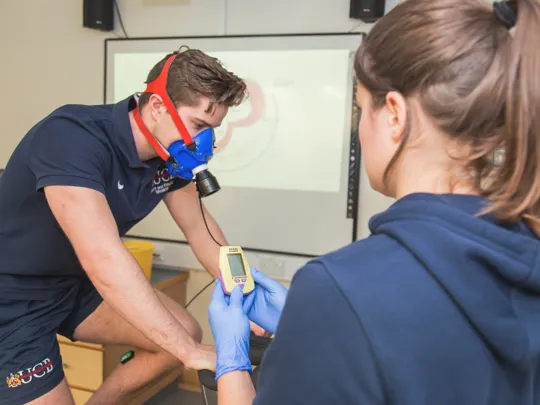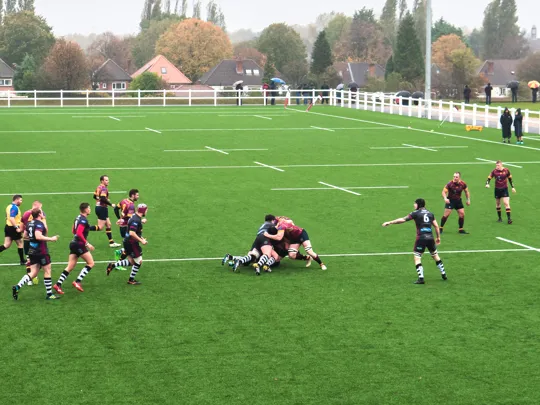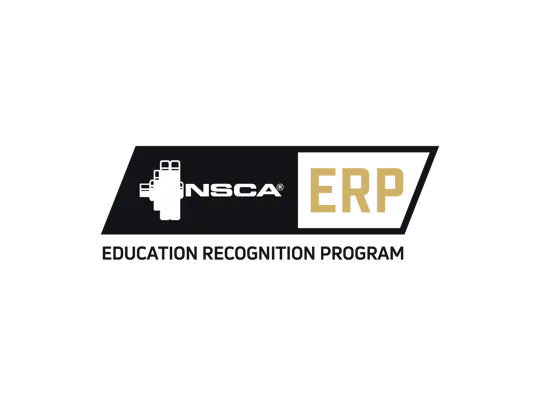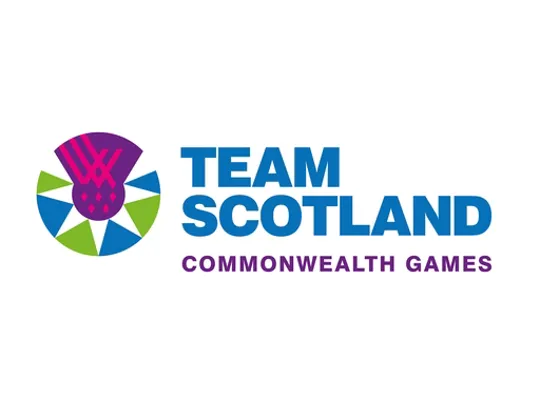of graduate employers say relevant experience is essential to getting a job with them
Why should I choose Strength, Conditioning and Performance MSc?
- EXCELLENT FACILITIES – Our Human Performance Centre includes a 35m sprint track while our purpose-built Human Performance Lab features the latest equipment including an anti-gravity treadmill
- PRACTICAL APPLICATION – - Our strong industry links offer you an extensive range of placement opportunities, helping you build experience within your chosen area of the sector. You will also practically apply skills using industry relevant equipment within lectures to enhance your employability
- EXPERT TEACHING – Students have rated their teaching satisfaction on the course at 98%. Learn from industry accredited and experienced staff and research active staff to develop your academic and practical skills
- INDUSTRY APPROVED – We are an education partner of CIMSPA and, following their partnership work with the UK Strength and Conditioning Association (UKSCA), we are exploring further programme accreditation on their Graduate Strength and Conditioning coach framework as well as with the International Universities Strength and Conditioning Association (IUSCA)
- NO EXAMS - If you are not keen on exams, this course is for you. Unlike many degrees in this field, you will have no written exams during or at the end of the course and will be assessed through practical assessments and coursework only
- ADDITIONAL BENEFITS - Gain free access to our Sports Performance and Rehabilitation Conference (SPARC), a paid for visit to St George's Park (the FA National Football Centre) and benefit from guest speakers from a range of backgrounds.
Speak with a lecturer
Our lecturers are on hand to help.
Simply fill in the form with a few details, and we’ll email you with a link
to book an online meeting with them to chat about the course.
Our facilities
Students on our sports courses at University College Birmingham have access to a wide range of excellent facilities. Our campus features a brand new Human Performance Centre, cutting-edge gym and sports injury and massage clinics, while you also have access to the state-of-the-art facilities at nearby Avery Fields, thanks to our partnership with local rugby club Bournville RFC.
Course breakdown
- Core modules
Core modules
Coaching and Enhancing Sports Performance
This module provides you with the knowledge and skills of the key principles and practical techniques required to enhance athletic performance. You will develop the ability to critically evaluate training practices and deliver evidence based coaching interventions for a variety of sports and performance contexts. The module places significant focus on the development of coaching skills, enabling you to confidently deliver interventions to enhance performance. Through practical workshops and theoretical sessions, with an emphasis on exercise technical models, you will learn effective coaching methods and techniques to assess, motivate, and improve athlete outcomes. The module will be primarily practical, based in the Human Performance Centre in Moss House allowing you to work on your coaching skills with a variety of participants and gain competence across a range of equipment used in both laboratory and field-based settings. This then prepares you well for further accreditation such as NSCA and UKSCA.
Science of Human Performance
This module explores the underpinning mechanisms which are responsible for human movement and performance. Each concept is explored with practical application in mind and the extensive use of the Human Performance Centre. Students You will gain practical competence across a range of equipment which will contextualise the underpinning theory of performance. The following topics will be explored in the context of strength and conditioning: • Bioenergetics and metabolism • Neuromuscular structure and function • Strength and power • Cardio-pulmonary function • Endurance performance • Fatigue and recovery • Exercise in different environments • Intermittent sport athletes • Physiological responses to training methods and modalities (e.g., variable resistance training, blood flow restriction training)
Sports Research Project
The dissertation provides you with the opportunity to consolidate your learning and undertake a supervised research project, in a specialised area of interest to you. The project may be based out of the state-of-the-art Human Performance Centre, Lab or in the field, and could build upon workplace learning experiences from the Strength and Conditioning Practitioner module. You are encouraged to aim for impactful outcomes, such as presenting your findings at academic conferences or publication in journals. The module also emphasises the development of communication skills, with you presenting research findings orally and translating key project insights into clear, digestable formats for athletes and coaches.
Applied Research Methods for Sport
This module will develop your understanding of the research process, and prepares you for undertaking your research project. The module will cover a range of research related concepts and prepares you for ethical applications to the Schools’ Research Ethics Committee. • Research philosophy • Secondary research and reviewing literature • Study design (including hypothesis testing, sampling, reliability and validity) • Research ethics • Descriptive statistics • Inferential statistics (relationships and differences between groups) • Reporting findings
Strength and Conditioning Applied Practitioner
In the field of strength and conditioning, excelling as a coach requires more than a strong grasp of performance science. Spanning over two semesters, this module focuses on equipping you with the essential interpersonal and professional skills needed to thrive in real-world practice. You will develop key competencies such as effective communication, empathy, conflict resolution, and management - soft skills critical to building strong relationships and fostering success in the field. The module also exposes you to industry-relevant experiences based on self-evaluation, allowing you to address your unique development needs. Additionally, you will be introduced to reflective practice, a foundation for professional growth and a vital skill for applied strength and conditioning practitioners.
Athlete Management
This module equips you with the knowledge and skills to effectively collaborate within a multidisciplinary team (MDT) to optimise athlete support. Key topics include injury screening and rehabilitation, performance testing, load and fatigue monitoring using advanced technologies (e.g., GPS), data analysis and visualisation, periodisation and programming, and the athletic diet. These approaches enable you to collect and manage data to inform decision-making, integrate insights from other MDT professionals, and develop tailored training interventions. You will effectively take a case study through the process of screening and testing, to goal setting and designing a training programme and implementing methods for load monitoring.
The modules listed above for this course are regularly reviewed to ensure they are up to date and informed by industry as well as the latest teaching methods. On occasion, we may need to make unexpected changes to modules – if this occurs, we will contact all offer holders as soon as possible.
Entry requirements
Academic
- A grade classification of 2:2 is required, or international equivalent.
- A subject-related UK or International honours degree from a recognised institution.
Applicants who do not hold a related undergraduate subject will be assessed on a case by case basis by our admissions team and if necessary invited in to attend an interview with the teaching team, after which the evidence from the above selection procedures will be considered. Full details of this procedure will be sent to applicants who have progressed successfully to this stage.
Work-based
We also consider applicants who are currently employed and wish to apply to University College Birmingham.
To apply, you must have five years of relevant managerial work experience, demonstrating in-depth knowledge of the sector for the subject matter you are interested in pursuing.
A reference detailing your roles and responsibilities from your line manager and a meeting with the programme team will usually be scheduled prior to a place being offered.
International students
For academic and English entry requirements for EU and international students, please visit the Country Specific Information page.
Please note: As an International Student, when choosing optional placement, a visa extension may be required.
Key information
Teaching and assessment
Teaching
The course will be delivered by a variety of methods which include attending lectures, seminar debates, workshops, interacting with guest speakers and leading entrepreneurs from the industry. You will also be expected to engage with independent reading and research to ensure an interactive and personalised learning experience.
Assessment
Assessment - You will be assessed by a range of methods to encourage the development of relevant skills and competencies. These include case studies, presentations, video presentations and assignments. Finally, you will undertake an extended research project linked to your area(s) of interest within the industry
Our teaching and assessment is underpinned by our Teaching, Learning and Assessment Strategy 2021-2024.
Tuition fees for home students
If you are a home student enrolling on a [Band 2] postgraduate degree course at University College Birmingham in 2025/2026, the tuition fee for full-time study will be £10,350 per year. For part-time study, the fee will be £5,175 per year.
Tuition fees for international students
If you are an international student (or have been fee assessed as an international fee payer) and enrolling on a full-time [Band 1] postgraduate degree course in 2025/2026, the fee for the academic year will be £17,000. If you complete a placement year, there will be an administration fee of £500 for a full year or £250 for a half-year placement.
Uniform and kit costs
We highly recommend that you purchase the course-specific uniform for this postgraduate course, costing approximately £100. (Prices are subject to change each year – exact costs and information on how to order required items will be provided to you prior to enrolment.)
Unibuddy Community - meet other students on your course
Starting university is an exciting time, but we understand that it can sometimes feel a little daunting. To support you, you will be invited to join our Unibuddy Community, where you can meet other students who have applied for the same course at University College Birmingham, before you start studying here.
As soon as you have been made an offer, you will be sent an invitation email to complete your registration and join the Unibuddy Community. For more information, check out our Unibuddy Community page.
Timetable
We understand that you need to balance study with work, so wherever possible your lessons will be timetabled into 2-3 days a week and 1 day a week for part-time study.
Accreditations, endorsements and partnerships
University College Birmingham works with a wide range of organisations to ensure you receive the best possible training and qualifications recognised by industry.
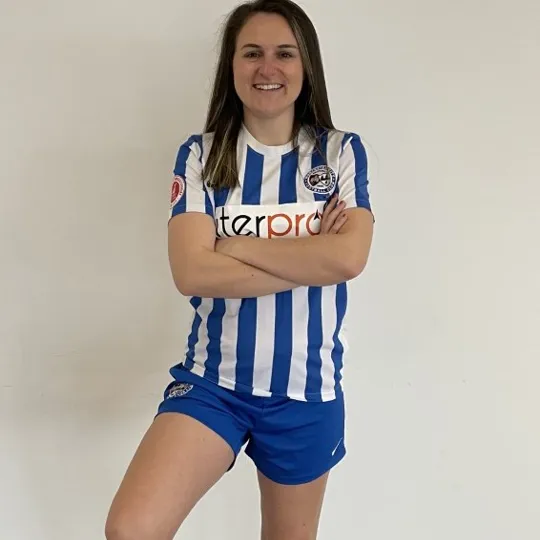
I had heard great things about the course and it didn't disappoint. The facilities are unbelievable, and the learning environment is really supportive. The lecturers make it an enjoyable experience, and you are surrounded by like-minded people.
Work placements
Work placements are vital for gaining real-life experience and for building your confidence and skills before you finish your course – and they may even lead to a job when you graduate. Our Hired team can help find the ideal placement for you.
Our strength and conditioning master's course features a 'Strength and Conditioning Applied Practitioner' module with a minimum of 50 hours of placement work required for your assessment. We also fully encourage and will support you in gaining further work experience to match your career aims.
Work alongside experts in your sector
A snapshot of some of the employers we have worked with:
- Wasps Rugby Academy
- Bournville RFC
- Gamechanger Performance
- Professional Game Match Officials Limited (PGMOL)
Career opportunities
The example roles and salaries below are intended as a guide only.
Performance analyst
Average Salary: £35,910
Personal trainer
Average salary: £14,000 – £35,000+
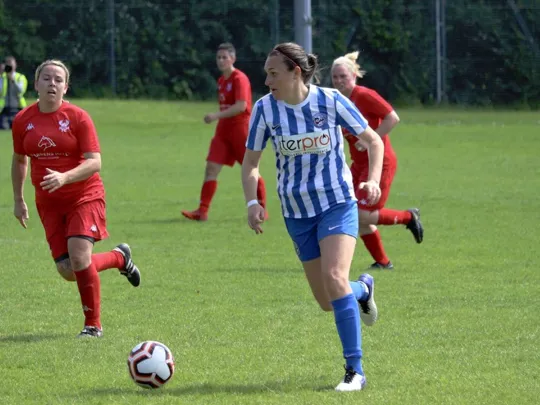
Jess’s Story
Studying a master's at University College Birmingham has helped footballer Jess make an immediate real-life impact in the sporting sphere.
Meet your lecturers

